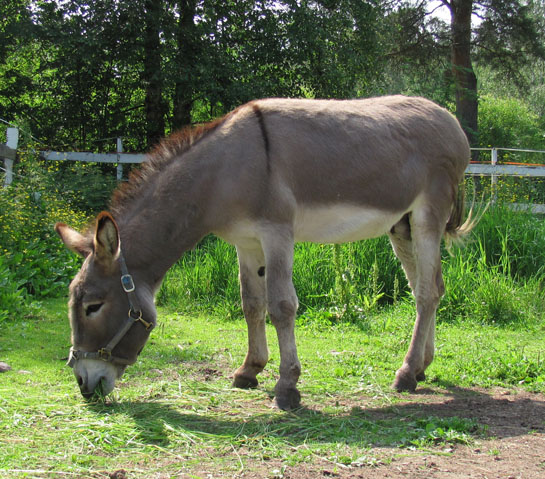The Donkey Sanctuary Debate

In tough economic times and with funding for scientific research as competitive as ever, how can we be sure that we are funding the projects that will benefit society the most? The University of Glasgow recently advertised for a funded Masters by research1 in partnership with The Donkey Sanctuary2. Luckily for the donkeys, The Donkey Sanctuary is footing the bill for this one and the project has some decent aims (improving the control of nematode parasites) so even the government might have approved the donkeys’ funding. So how do governments make decisions on funding for scientific research? Well, their decisions are often based on certain measures of the potential ‘impact’ of the proposed research based on previous contributions from the author or research group (usually quantified with the help of ‘impact factors’ for scientific journals and ‘h-indexes’ for authors). These measures serve to help members on scientific funding committees (usually scientists themselves) reach funding decisions but in reality, they are of limited usefulness. Committee members can only realistically allocate the money to the team they think will produce the best science with the best outcome. They have no magic wand to predict the potential impact of the research and many argue that the use of h-indexes and journal impact factors as a measure of previous output are actually just (rather easily manipulated) smoke and mirrors3. For example, in the 1790s a physicist called Volta4 experimented with inserting an electrified rod into his ear. His discovery that delivering an electric current through the ear resulted in sound perception would be the basic principle behind the development of the cochlear implant. Yet Volta still has no Google Scholar profile5. I doubt the government would have funded Volta and his ear fiddling experiments, yet the impact was hugely significant two centuries later. The problem is pretending we currently have an effective way of quantifying scientific output. There will always be winners and losers in science funding and the factors and indexes are used to make tough decisions more objective. We must accept however that these measures do have their limits and we cannot predict the benefit that any one study (or donkey) will have on society, now or in a hundred years.
References
- http://www.gla.ac.uk/colleges/mvls/graduateschool/researchopportunities/scholarshipopportunities/fundedmasters/
- http://drupal.thedonkeysanctuary.org.uk/home
- http://occamstypewriter.org/scurry/2012/08/13/sick-of-impact-factors/
- http://www.powerhousemuseum.com/hsc/cochlear/history.htm#volta
- http://scholar.google.com/citations?hl=en&view_op=search_authors&mauthors=Alessandro+Volta










